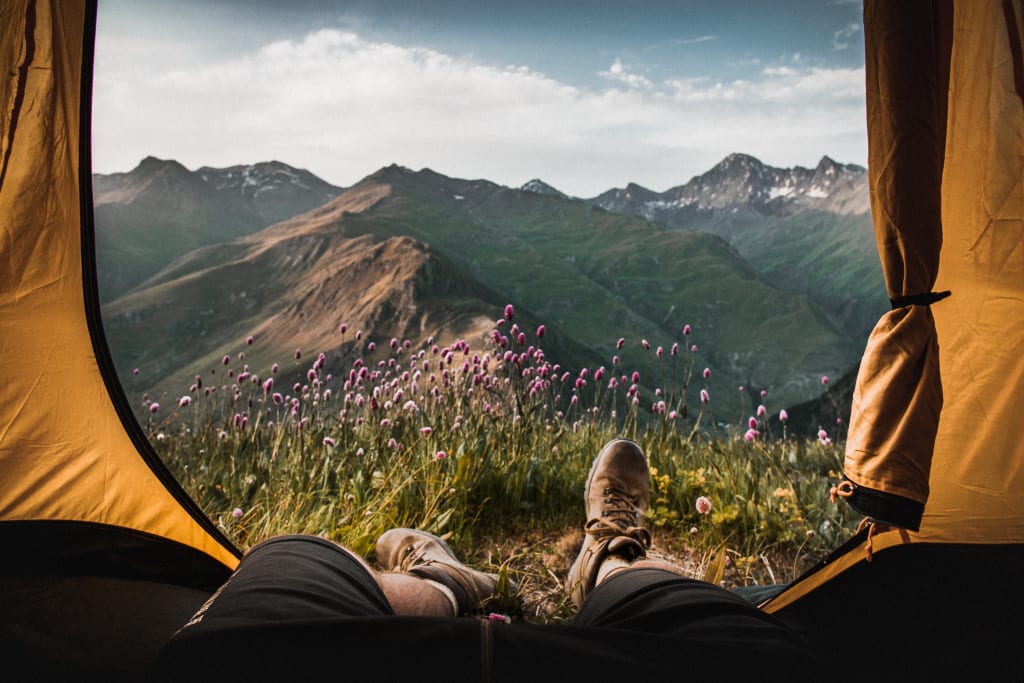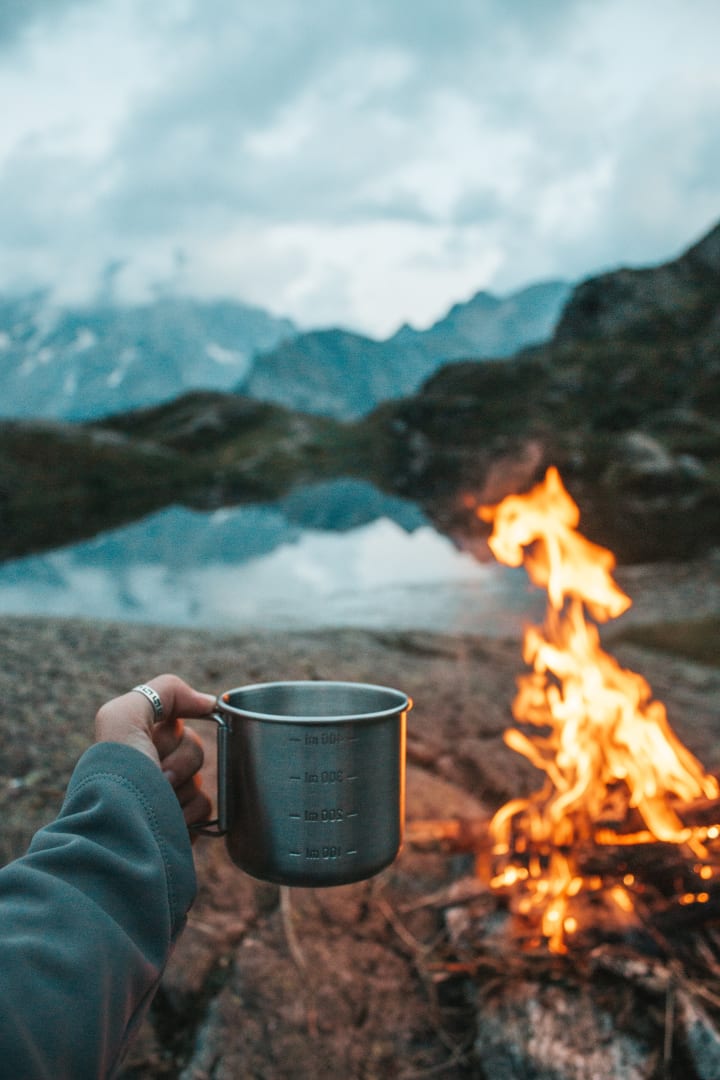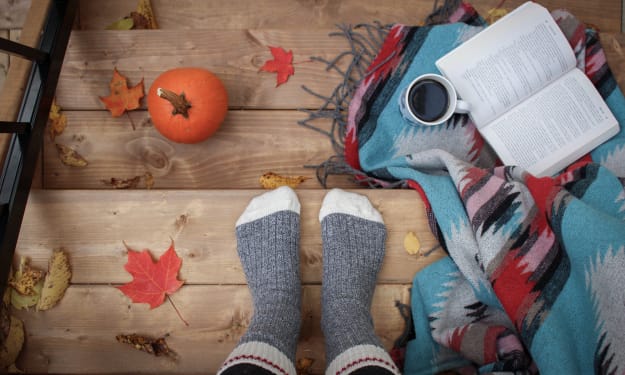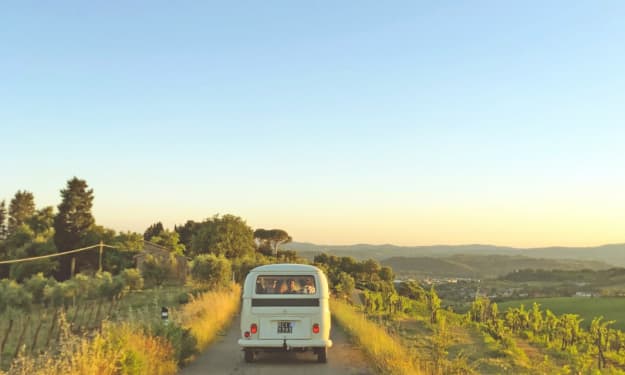7 Essentials to Remember to Pack When Camping
Don't forget to pack these items before your next outdoor adventure.

The great outdoors! With technology booming right now and AC versions of everything, we spend less time outside and more time lounging around watching Netflix from the comfort of our beds. Trust me when I say I'm in no way judging you for this. I am a lover of shutting myself inside for a week with a 12 pack box of popcorn and Gilmore Girls streaming 24/7.
While I'm not someone who is over the moon about camping, I cannot deny how much fun I have when I do brave the wilderness. Camping is a fun adventure for everyone and, for the most part, can be done pretty inexpensively.
If you are planning a camping trip with friends, family, or yourself, these are what I believe are the essentials to bring when making the great outdoors your temporary home. With a fiancé who is an adventurist at heart, I have made it a habit to remember these seven essentials. Now, that does not mean you don't need things like clothes and undergarments, I just like to think all of us are smart enough to remember that sort of thing.
Figure out your sleeping arrangements.
Depending on your needs will help you decide what type of sleeping device you will purchase. While a tent is usually the more popular of choices, you can also do a hammock (my preference) or just a sleeping bag and the open air.
Since nights outside usually become a lot colder almost anywhere you are camping, a dependable sleeping bag is a necessity. This will give you warmth, protect you from being eaten alive by insects, and give you a little comfort from the ground. Trust me though, when sleeping on the ground you will definitely not forget it is there.
Some people bring air up mattresses, pillows, and blankets as well, but it is entirely up to your preference. If I am sleeping in a tent, I usually pack a pillow and a comforter with my sleeping bag for extra cushion. You can also get small air up mattresses that fold up like a sleeping bag (a bonus when you are hiking to your designated camping spot).
If you are sleeping alone, I would highly recommend a sturdy hammock. They can be used wherever you find two trees and, with a sleeping bag, can take up a lot less space than your traditional tent. They are also more comfortable, breathable, and don't get as wet as tents could potentially get from the morning dew.
Don't forget your flashlights.
While this is a given, it is also easily forgotten in the packing routine. Trust me when I say there is nothing worse than stumbling your way to the camp's bathroom in the middle of the night without a flashlight.
While you can use your phone for some light while getting tucked in at night, I would recommend getting a headlamp for more convenience. This way, you can use both hands to set up tents, walk around, and other activities you will most likely be doing during nighttime hours.
Bug spray and SPF are your friends.
Camping is fun until you realize you've been bitten for the fifth time in a row, have a sunburn forming on your neck, and still have three more days of the outdoor life. Recently I went on a trip to Kentucky where the temperatures were nearing 100 most days. It was almost impossible to find shade.
I found myself sunburnt on the first day, with seven more days to endure. Since there was no shade, I was forced to sit out in the sun with my skin baking away. Don't be like me. Make sure to bring a sun hat, SPF, and bug spray on your trip. Don't forget, West Nile Virus is not just a scary story but something you can actually get.

The campfire supplies you didn't know about.
Not all of us can be Bear Grylls and light a fire with, well, nature and nature alone. Bringing a few campfire supplies will be a necessity you didn't even realize you needed until you go to start a fire. We usually get fire starters to get things going. You can purchase them for relatively cheap, and most can be used without kindling to get started and will even light when wet.
Other things to remember are matches and (if you are eating certain foods) wire sticks. These are usually used for marshmallows or hot dogs, but they are also great at moving logs around (but a stick in the woods will work just as well).
The necessary food and kitchenware.
Bringing camp-friendly food is always a necessity seeing as how we have to eat (and again, we are not all Bear Grylls). We usually bring a big box of food that consists of things like oatmeal, fruits, granola bars, and canned soups/chili. You can also purchase meals that are specifically designed for camping, such as Mountain House. These are packaged dinners that are already cooked and only need hot water to turn into a tasty meal (and they really are delicious).
When it comes to kitchenware, you can go to any outdoors store and find amazing utensils for camping. The things you want to look for are easy to clean and light utensils that will be easy to carry back and forth. We usually have a spork (fork and spoon combo), a Jetboil (for boiling water and such), a cast-iron skillet, an aero press (for coffee), and a thermos for any warm beverages.
For extra convenience, go for the Jetboil cooking system so that you have everything you need to make dinner. This includes a steaming cup, match ignition, the fuel, and a bottom cover that doubles as a cup and a bowl.
Water jugs, bottles, and water itself.
Some camping areas have places to fill up on water, while other areas might not. In case this happens, having a big jug of water is a must! Obviously, you might have to find a water station to fill it up if you are out for several days. Having water on hand is beneficial for things like cleaning your dishes and the quick rinse off (in case there are no showers near you).
With water, you also have to keep a water bottle on hand. Since you are more exposed to the elements, the body will need more water than usual to stay hydrated. I typically bring a couple water bottles that I can easily attach to the bottom of my hiking bag. Make sure they are at least 32 ounces so you can go a while without refueling.
You can also buy 'hydration bladders,' which are basically a large bladder with a nozzle to drink from. These are great for long hikes since they fit easily in a bag and can hold a lot more water than a conventional bottle.
And don't forget the first aid kit!
I found out firsthand how necessary this is and how easy it is to overlook this. On one of my camping/hiking trips, I found my foot stuck between two rocks causing it to painfully twist. Luckily someone else had supplies to help my ankle until I could get to the car (and a sweet stranger who knew how to wrap a bandage properly). Having these things is definitely needed in case of an emergency.
Bringing the essentials like Band-Aids, medicines, and ointments are a great start! I would also add wraps, Butterfly Band-Aids, and some form of brace (in case of a break). While I hope no one ever has to use these things, it is always a great thing to have on hand for those moments.
Keeping a GPS phone (if you can) in the first aid kit is also a good idea in case you are miles from a vehicle, and you or someone is unable to move. You should always have fun while camping, but no one will have fun when safety isn't a priority.
About the Creator
Ashlyn Harper
A chaotic room of stories. My curiosities lead me in all types of directions, creating a chaotic writing pathway. I want this place to be for experimenting, improving my craft, and sharing new ideas with anyone willing to read them.






Comments
There are no comments for this story
Be the first to respond and start the conversation.